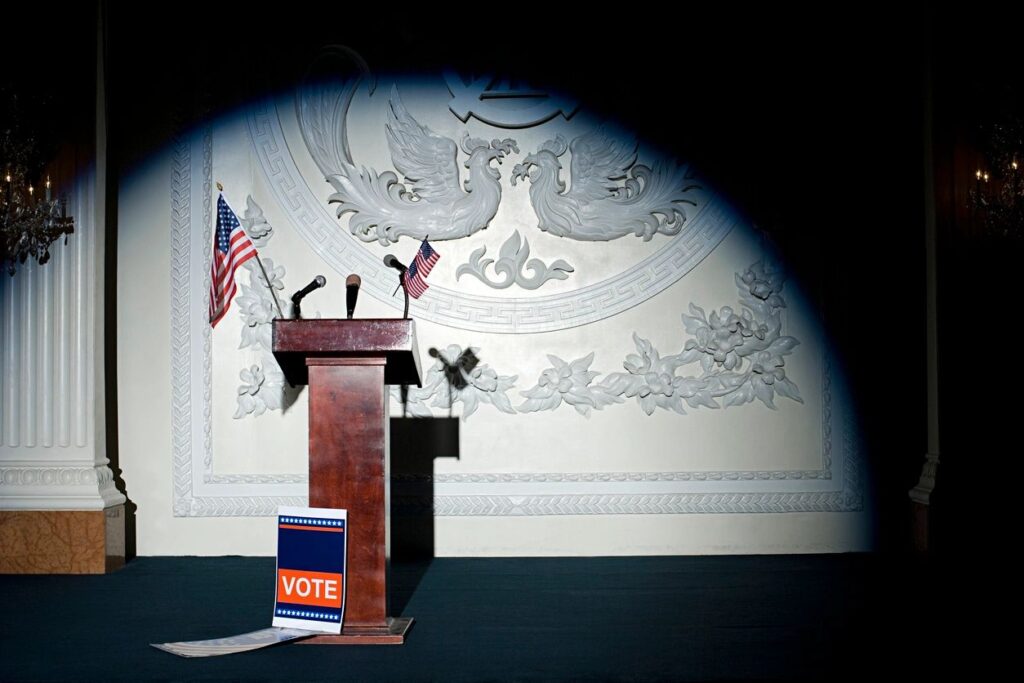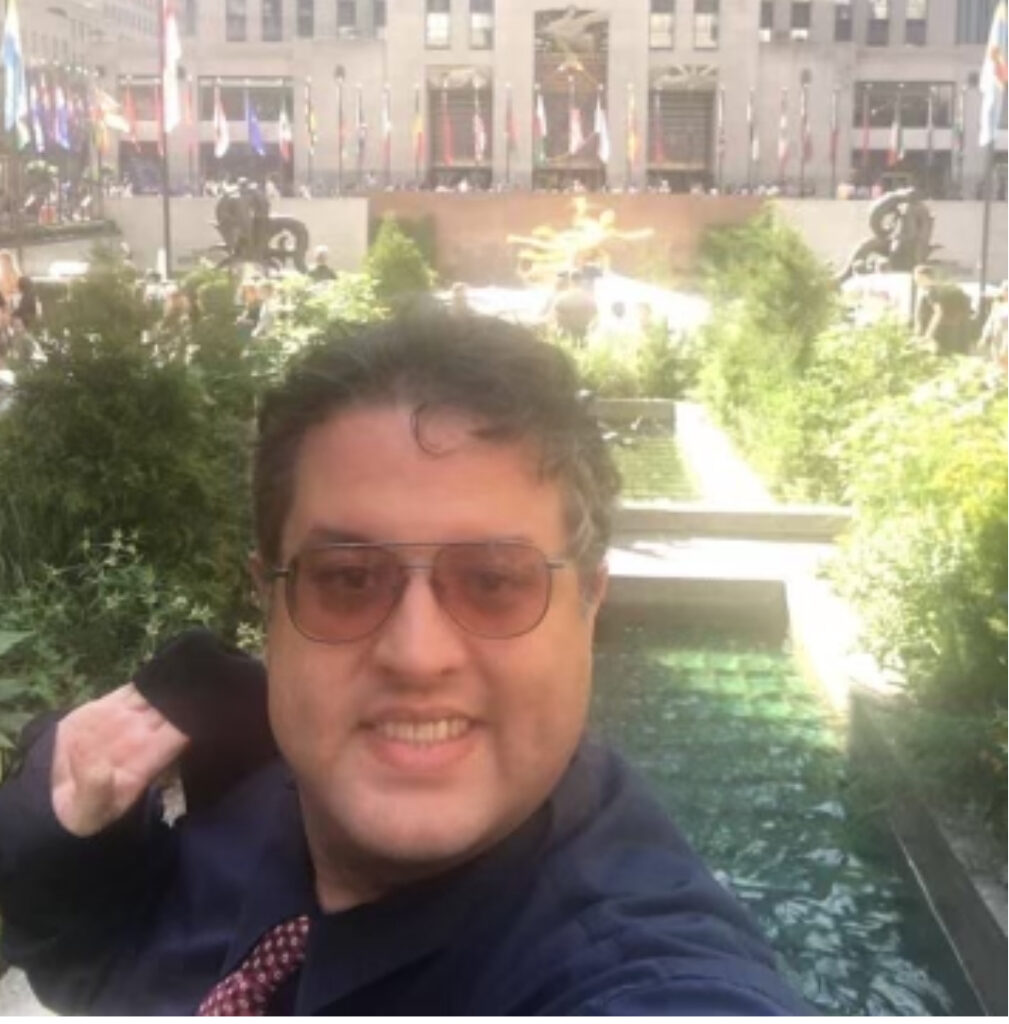
By Melissa Billie Clark
As we approach the election between Vice President Kamala Harris and former President Donald J. Trump, let us remember what they are truly fighting for: us! We are placing our future in their hands, hoping they will prioritize the interests of the American people.
One thing we can be sure of that will protect us is the United States Constitution.
The Spring Creek Sun sat down with history educator and constitution expert Christopher Canarelli to discuss what our founding fathers left us more in-depth.

SCS: How was the Constitution created?
CC: After the 13 colonies declared their independence from Great Britain with the Declaration of Independence, the need for a governing document was debated and ratified in 1777 as the Articles of Confederation. The document loosely organized the 13 colonies and encouraged greater autonomy of each colony. With a weak central government, it was proven ineffective at the time of the formation of a new nation after victory in the American Revolution, as well as overly protectionist as far as interstate trade.
Therefore, a revision of the Articles became the Constitutional Convention, meeting in Philadelphia’s Independence Hall. After coming to an agreement on three co-equal branches of government (Legislative, Executive and Judicial) a bicameral (two houses) legislature and structure/elections of both houses (elections have changed in the Senate from appointed by state legislatures to popular elections as a result of the 17th Amendment) and an inclusion of a Bill of Rights; the Constitution was ratified in 1787, and every American could see the original Constitution displayed in Washington DC’s National Archives.
SCS: Why is the Constitution essential when it comes to the election?
CC: The US Constitution, and this is overlooked by many, gives the authority to the states in setting up the rules – early voting, absentee/mail-in, directives to county clerks, etc. for federal elections. (Specifically, the state legislature in Article II, Section 1 Clause 2; and Article I, Section 4, Clause 1). While the state legislature puts forward the logistics that have to be signed into law by the government, the US Constitution, through the Amendment process, makes the determination of who is eligible to vote. As years have progressed, more Americans have gained voting rights through the Amendment process.
The ratification of the 15th Amendment (1870) gave freed (from slavery) black men the right to vote in both federal and state elections “The Rights of Citizens of the US to vote shall not be denied or abridged by the US or by any state on account or race, color or previous condition of servitude.”
With the ratification of the 19th Amendment (1919) women were given the right to vote with the amendment’s language “The right of citizens of the US to vote shall not be denied or abridged by the US or by any state on account of sex.” Most historians trace the 1848 Seneca Falls Convention as the birth of the women’s suffrage movement and while many new states allowed women to vote, it was still not legal in older states; hence the need for the Constitutional Amendment.
The 24th Amendment (1964) ended the implementation of a poll tax in Federal Elections, which was viewed as a form of disenfranchisement, especially in the Jim Crow South.
Having a basic Constitutional knowledge and understanding will not only give citizens the information needed for the structure of the Federal government, but it will provide them with a blueprint and opportunity for civic engagement.
SCS: Being an educator, do you think the youth understand the importance and how to utilize it when it comes to voting?
CC: In my classroom, my students will not only gain an understanding and knowledge of the Constitution, but they will also comprehend its roles in civic society, while being able to apply that knowledge years after leaving my classroom. From an understanding of the rights of the Second Amendment to a realization that they are not protected by the US Constitution in a foreign country. That pocket constitution they will utilize in my classroom will be their guide to citizenship, while at the same time, encouraging civic engagement.
The encouragement of civic engagement is what I most try to hit home to my students. Not just the structure of the Amendments, but the effects/impact it has on their lives as Americans. For example, the First Amendment gives them the right to redress grievances. I provide suggestions and examples on how to do this in a responsible and effective fashion, from attending political events to meeting with their political representatives.
While I believe that civic engagement should begin at home, this is not always the case so it is a central focus of my US History classes, and it should be a focus nationwide. But that most basic form of civic engagement is voting – gaining an understanding of the issues, the candidates, putting in the proper research and having a voice at the ballot box.
SCS: How are Harris and Trump using the Constitution?
CC: What makes the US presidential election most unique is the determination of the winner by the Electoral College. Our founding fathers did not want a popular vote, or vote by the masses, in a presidential election. Instead of a focus on the most populous states, the electoral college brings smaller states into the discussion and allows them to be a determinant in the outcome of the election. Looking at the election today, if elections were determined by a popular vote – and this requires an Amendment to the Constitution – candidates would only campaign in California, New York, Texas and Florida; leaving much of the population of the country out of the equation. As a result, each campaign forms and implements a strategy to earn 270 electoral votes. This is why the importance of winning a swing state is integral.
In 2024, Pennsylvania is probably the most important state. With two major cities – Philadelphia and Pittsburgh – along with their suburbs, the rural parts of the state and the industrial areas of the state in economic flux; each vote differently and it is the objective of each candidate to articulate why their agenda is most deserving of a vote. And each campaign also must take into consideration the voting procedures of the state, which came into question in the last presidential cycle (further described in the subsequent question)
Additionally, each campaign’s use of the Constitution will most come into play if there are disputes about the election.
SCS: When is the Constitution most used?
CC: As far as a presidential election, we see the Constitution come into play most in settings when either a candidate does not reach 270 electoral votes, or when one candidate wants to bring an election dispute into the courts. The last time the electoral college (states electoral college counts are determined by their number of Members of Congress added to their US Senators – for example New Jersey 12 Members of Congress plus the 2 Senators) did not determine was 1824. In this case, Congress will determine the president; with the members voting as a state delegation. Theoretically speaking, a 269-269 electoral vote count could happen in 2024, and if this happened the House of Representatives – with the newly sworn in Congress – will vote for the next president.
In most of our lifetimes there have been two disputed elections – 2000 and 2020 – that both had petitions at the Supreme Court. Bush v. Gore (2000) was heard at the Supreme Court and cited the equal protection clause of the 14th Amendment that stopped the Florida recount as a result of the Gore campaign choosing only some Florida counties to recount, as opposed to all, and the Florida Supreme Court in endorsing what was viewed as an unconstitutional process. In 2020, the state of Texas wanted to bring a case against the Commonwealth of Pennsylvania; and when a state sues another state, the original jurisdiction is the Supreme Court. The case stated that Pennsylvania, along with Michigan, Georgia and Wisconsin violated Article 2, Section 1, Clause 2, in changing the rules of the election through non-legislative means. Unlike 2000, the Supreme Court chose not to hear the case as only two of the required four voted to hear the case.
Christopher A. Canarelli is a History/Social Studies Educator, National Review Institute New York Regional Fellow. He holds an MBA from Rutgers University, MA from Monmouth University and BA from Drew University. Chris has been seen and heard on the Fox News Channel, NBC and various podcasts.



